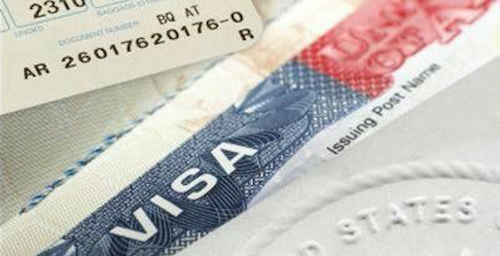More than 130 international students across the United States have joined a federal lawsuit accusing the Trump administration of illegally revoking their visas, threatening their legal status and exposing them to arrest, detention, and deportation.
Plaintiffs filed the case in Georgia on April 11, 2025, underscoring students’ claims of arbitrary terminations in the Student and Exchange Visitor Information System (SEVIS) database, which Immigration and Customs Enforcement (ICE) manages.
Originally filed by 17 students, the lawsuit has grown to include 116 additional plaintiffs as the Trump administration intensifies its crackdown on immigration. The complaint names U.S. Attorney General Pam Bondi, Homeland Security Secretary Kristi Noem, and Acting ICE Director Todd Lyons as defendants. It seeks to reinstate the revoked visas and stop further terminations from the SEVIS system, jeopardising students’ ability to remain in or reenter the U.S.
The filing identifies the students anonymously to avoid retaliation and states that immigration officials cancelled their visas without clear justification. John Doe 2, a Chinese doctoral candidate in engineering at the Georgia Institute of Technology, discovered that authorities revoked his visa after a criminal‑records inquiry; he believes a closed traffic violation triggered the action, despite his otherwise clean record. Another plaintiff, an Indian student at the New York Institute of Technology, saw his visa cancelled even after the court dismissed a shoplifting charge against him.
International students sue over Trump admin revoking visas https://t.co/jo1hGUswvx
— Fox News (@FoxNews) April 15, 2025The complaint describes a wave of visa revocations that has “shaken campuses across the country” over the past week. Students report discovering their SEVIS status terminated abruptly, often without explanation. These actions coincide with federal demands on universities, including threats to cut billions in funding, creating a climate of fear for international students.
The lawsuit argues that the terminations are unlawful and disrupt students’ education and prospects. A SEVIS cancellation can bar individuals from reentering the U.S., even for legitimate purposes, compounding the stakes for those affected.
Case Studies of Injustice
The filing details the experiences of the original 17 plaintiffs, revealing a pattern of seemingly random visa cancellations:
- John Doe 2: A Chinese engineering Ph.D. student believes a minor traffic violation led to his visa revocation, despite no active criminal record.
- Indian Student: Cleared of a shoplifting charge, this New York Institute of Technology student still lost their visa status without clear reasoning.
These cases underscore the plaintiffs’ claim that ICE’s actions lack transparency and fairness, violating due process.
The lawsuit emerges amid the Trump administration’s broader immigration policies, which have targeted foreign students alongside other groups. The plaintiffs argue that the visa revocations harm individuals and undermine U.S. universities’ ability to attract global talent. The case could set a precedent for how international students are treated under federal immigration systems like SEVIS.
As the legal battle unfolds, campuses nationwide remain on edge, with students and administrators grappling with the fallout of these abrupt policy shifts. The outcome of the Georgia lawsuit may determine whether these students can continue their education and secure their futures in the U.S.






